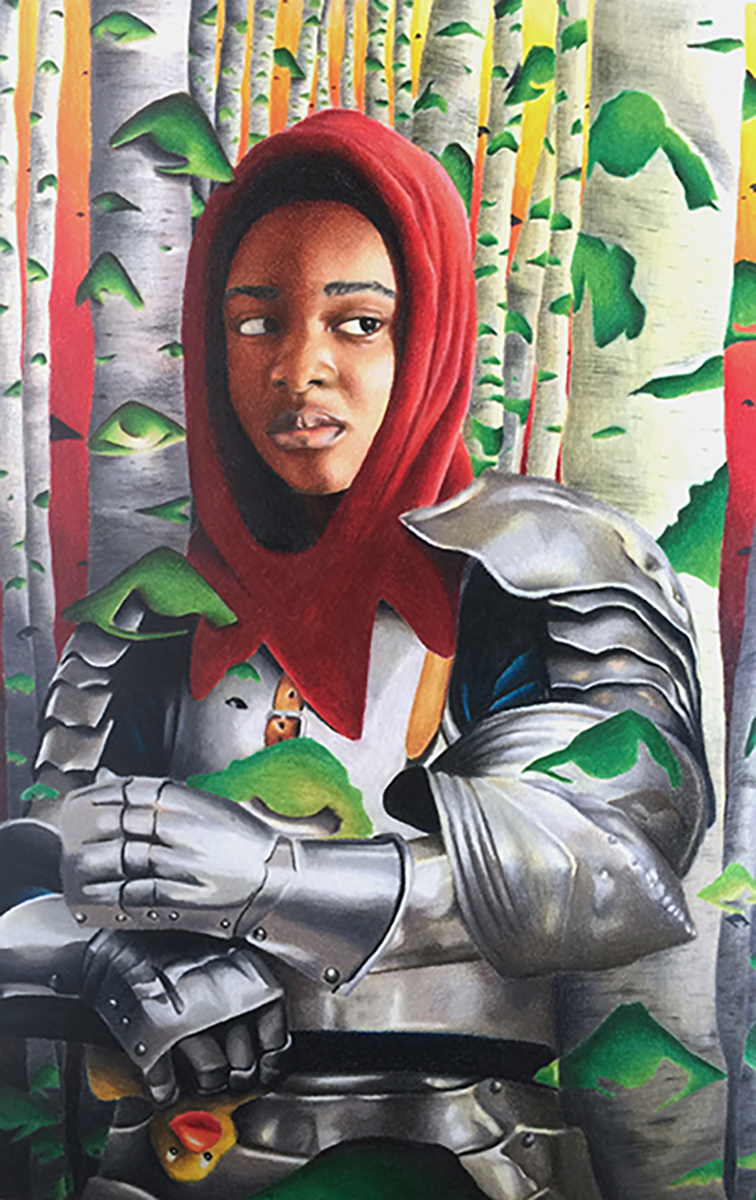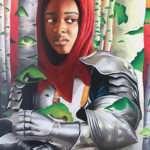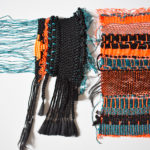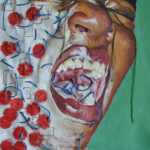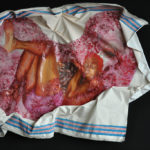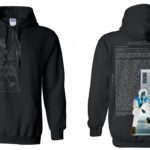JENN[ifer] MARTINEZ ARTIST STATEMENT
After studying at predominantly white, and higher income institutions like The Rhode Island School and Rutgers Mason Gross, I’ve returned home to Jersey City. Informed by my experiences at these institutions I realize why spirit continues to call me home. As the only personinterested in mapping out the history of my family I serve as their voluntary archivist. I choose to… “Land Home” This is a lifelong project that aims to archive the Martinez, Bautista, De Los Santos, Nina, Lucas, Medina family. In the act of writing us into history, Jenn[ifer] Martinez intends to use verbal
narratives, photos and documents to expand a digital footprint and open an opportunity to document an entire family network into the future.
At the base of my work is a desire to heal and question the deepest layers of my identity ruled by my past. The places I would inhabit in
both the Dominican Republic and New Jersey, have shaped my understanding of how interior spaces can reflect my cultural perceptions, and fears toward exterior environments.
My practice is focused on reimagining what I want the shape of my “home” to take, with consideration to how I want to embody or represent myself within space. Interior Spaces have the biggest influence on how I perceive the exterior world. I’ve spent most of my adolescence indoors while also moving back and forth between family members’ homes. Leaving me constantly feeling dislocated. Adapting to familiar environments became a process where I would step back and try not to get in anyone’s way. My practice encourages me to take up space in a way that lets me leave a piece of “home” in everything I make. With consideration to my cultural and social positionality, I aim to create a culmination of spaces and works that represent how my past has influenced the way I want to navigate living spaces.
I’ve sat down with the maternal figures in my life. My grandmothers, mother and sister (three generations I have the blessing of getting to know while we’re all still alive and well.), and realized how much of an impact these matriarchal figures have on my life. Not only have they reimagined what afrofuturism looks like within the “home”, but they’ve helped me redefine and shape my art practice. Influencing me to focus on what could be, through what was. I often wonder what the best gift would be for them. As I get older I realize this gift must include me taking part in homemaking.
These four women encourage me in this organizing work and are enthusiastic about providing me with the information I need to do this work. Whether that be, sitting down with me and writing out a family tree, or going through photo albums and putting a face to a name (so I can better organize what we do have), as well as letting me interview them and record they’re answers to very vulnerable questions. I want to be able to preserve our memories & have a system in place for future generations to do so just as easily. Unfolding a capsule of information. I feel that knowing one’s history is a crucial aspect of liberation work. Which is why through this I find myself frustrated (with all the information I’m taking in), yet content (with the fact that I am organizing this for a greater purpose).
The process of locating my ancestors within history has been a process I’ve fallen in love with. It has become my form of imaginary homemaking. Since I’m mapping out webs and roots of commonalities, I’m driven to continue this work of archiving. I started my art practice with making work about my traumatic upbringing, which then developed into a design practice that focuses on fitting the pieces that intertwine in finding my ancestors lineages. Redirecting the shame I felt for my past, to a curiosity of how my ancestors inform the trajectory of my family members still living today. Making me
better understand their motives and behavioral patterns. In doing so I realized how far removed my family is from archiving our family history. How after decades of making memories in multiple countries around the world, we have yet to find the language or initiative to document our family. They too are attached to this feeling of shame towards the past. Resulting in them choosing to forget as a coping mechanism. Making this archival work necessary and hopefully accessible.
My role as my family’s archivist is to take on this role of recording, scanning, researching, interviewing, etc. and finally having a mapped out tangible & digital format of our historical records. I do this through oral storytelling, sourcing collections of pictures and writings, etc. Inscribing our being into history even as ghosts of what was.
Doing this work is rewarding. For the fact that I spark memories in my family members. Which leads them to initiate conversations with me that address histories I am able to connect to through imagination. Bringing these stories into visual form has helped them feel understood, as I have represented their thoughts without speaking. It’s a magic I can’t easily explain.

